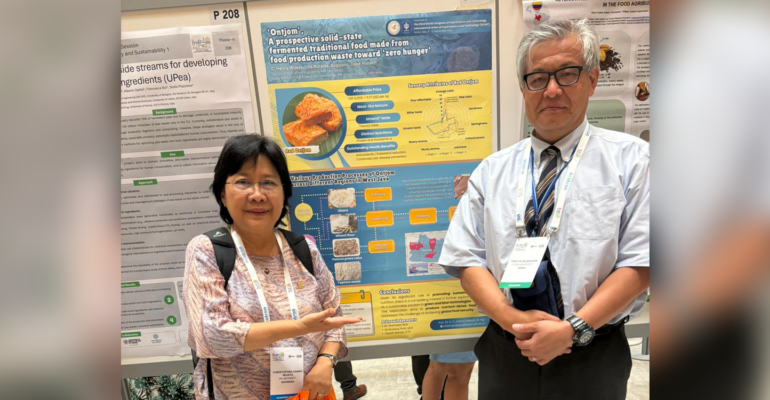Introducing Oncom to the World: IPB University’s Professor of Food Technology Breaks Through with Research Featured in Nature

Oncom is a traditional fermented food product, originating from West Java, Indonesia. It is made from waste or by-products from other production processes that are not otherwise utilized.
Recognizing its potential, Prof C Hanny Wijaya, a distinguished professor from IPB University, has dedicated her time to researching oncom. Her work has even been published in Nature, a renowned scientific journal highly regarded in academic circles today. Let’s delve into her story!
“There is one aspect I worry might disappear, which is the local wisdom and natural resources that have yet to be documented. These elements are scattered across Indonesia, but unfortunately, many Indonesians seem indifferent to them,” explained Prof C Hanny Wijaya, a Professor at the Department of Food Science and Technology, Faculty of Agricultural Technology, IPB University, when asked about her motivation for researching oncom.
A graduate of Hokkaido University in Japan, Prof Hanny expressed her concern that local wisdom is being neglected due to the ignorance of the local population, who are often preoccupied with matters beyond their control.
“It indeed takes time to spark interest in something local and traditional. But in reality, this research made it into Nature. As a result, people abroad will inevitably read about and recognize our local heritage. From local to global,” she added.
Prof Hanny’s interest in oncom began with her fascination with its distinct orange color. With today’s growing trend towards zero-waste food processing, oncom has the added advantage of being a product made from waste, such as soybean pulp, red bean extract residue, cassava pulp, and even soybean skins.
Moreover, Indonesia is the largest incubator in the world. Its equatorial location means the country experiences a climate like that of an incubator: high humidity, minimal seasonal variation, and an abundance of solar energy. These conditions are advantageous for developing fermented foods.
“What we need to understand is that this wealth is not only Indonesia’s heritage but also belongs to the world—a world heritage. I see countless advantages in our traditional foods that we have not fully appreciated. More importantly, by studying them scientifically, the benefits of local food products are validated and become easier to accept globally while being properly documented,” she remarked.
She further emphasized that research doesn’t always have to be about something incredibly advanced; even unique subjects, if studied with a global approach, can yield prestigious outcomes. “In essence, do not be discouraged if your ideas are rejected or underestimated by others,” she advised. (Fatin/Rz) (IAAS/RUM)



